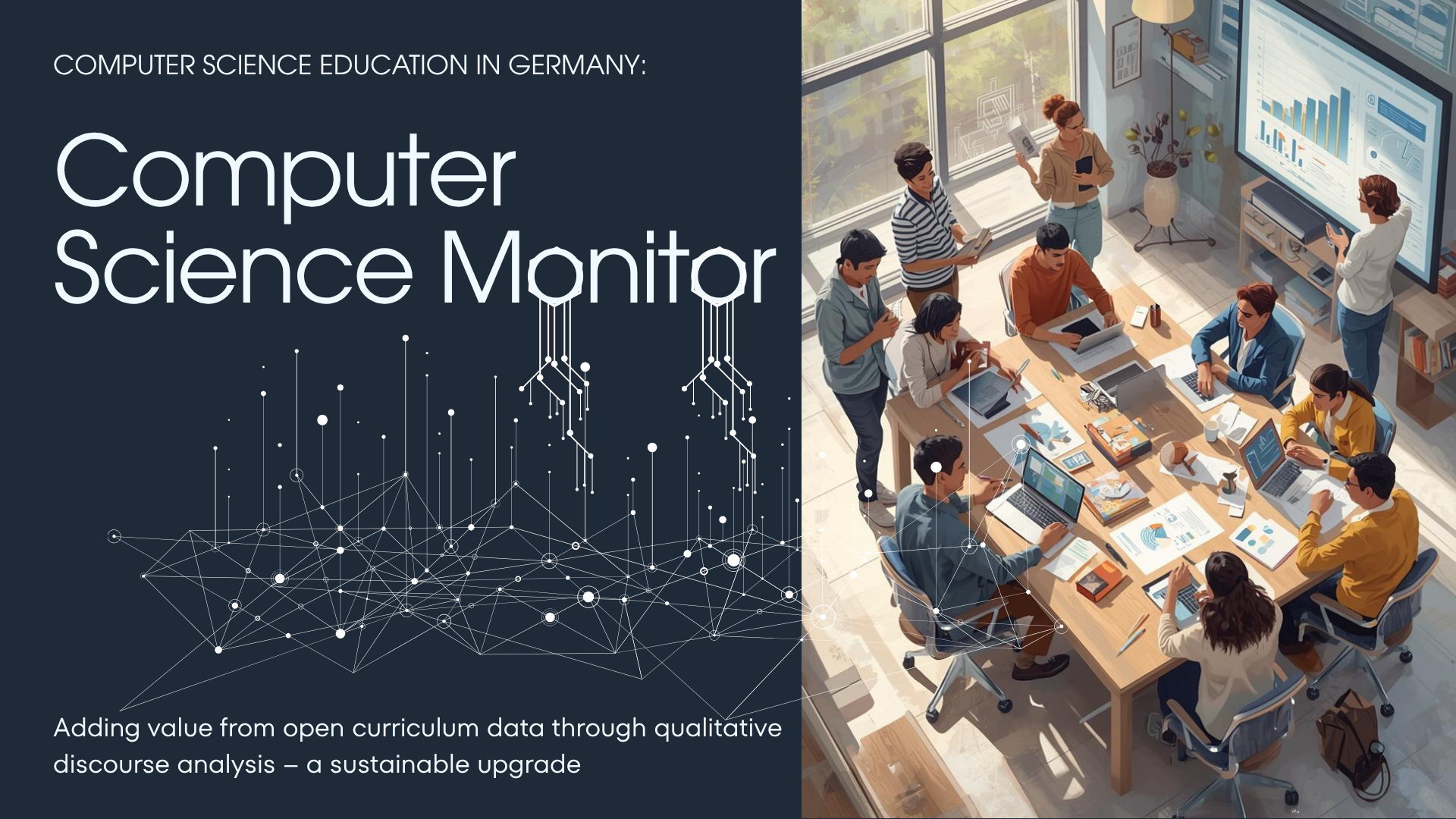Computer Science Education in Germany

Creating Value from Open Curriculum Data through Qualitative Discourse Analysis – a Sustainable Upgrade for the Informatics Monitor
The quality of computer science education in Germany is a key factor for the country’s digital future. The project “Computer Science Education in Germany” addresses this challenge by systematically analyzing freely available curriculum data from all federal states. The goal is to identify which competencies are included in computer science education and where improvement is needed—ultimately contributing to a more future-oriented, equitable, and sustainable education policy.
At the heart of the project lies the further development of the Discourse Analysis Tool Suite (DATS), a research software created at the University of Hamburg. DATS enables the examination of educational documents using modern methods of qualitative discourse analysis, artificial intelligence, and natural language processing (NLP). Within the project, DATS will be extended to meet the specific requirements of curriculum data analysis, resulting in a powerful, open, and sustainable tool that supports evidence-based decision-making in both research and education policy.
In close cooperation with the German Informatics Society (Gesellschaft für Informatik e.V., GI), the project’s findings will be integrated into the Informatics Monitor—a publicly accessible platform that visualizes and contextualizes data on computer science education. This will allow educators, policymakers, and the broader public to better understand which competencies are being taught, how curricula differ across regions, and what trends are shaping the future of computer science education in Germany.
The project contributes to the Triple Transformation—digital, sustainable, and open. It combines technological innovation with societal responsibility:
- Digital, by applying data-driven research and AI-supported analytical methods.
- Sustainable, by building on open research data and long-term digital infrastructures.
- Open, by promoting transparency and public access to data and findings.
Against the backdrop of the current STEM skills shortage and the introduction of new national computer science education standards, the project delivers timely and policy-relevant insights. It demonstrates how informatics competencies can be fostered at an early stage and how educational processes can be modernized for the digital era. Beyond computer science, the project’s methodological approach can also be transferred to other subjects and curricula, thereby contributing to the broader, data-driven transformation of education in Germany.
Project Partners
Dr. Martin Semmann
Julia Pawlowski
Fynn Petersen Frey
Moritz Kreinsen
Faculty of Education, University of Hamburg
Anna Sarah Lieckfeld
German Informatics Society (Gesellschaft für Informatik e.V., GI)
This project is funded by Knowledge Exchange Fund of Universität Hamburg
